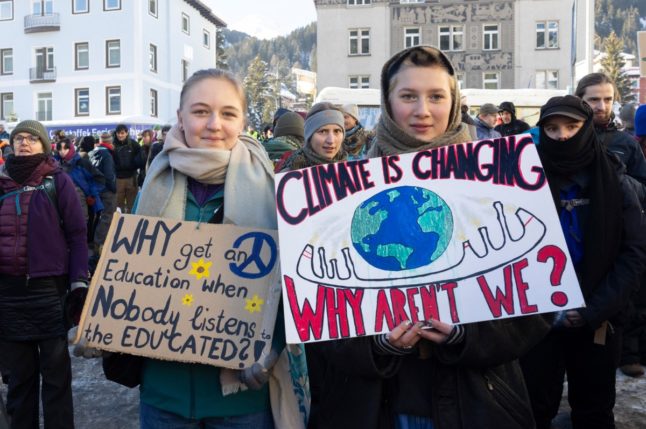POLICE
Swiss-Guatemalan ex-police chief jailed for 15 years
Guatemala's former police chief Erwin Sperisen was slapped with a 15-year prison sentence on Friday after being reconvicted for the deaths of seven inmates in his home country.
Published: 28 April 2018 09:55 CEST

Guatemala's former police chief Erwin Sperisen hugs his son after his conviction on Friday. Photo: Harold Cunningham/AFP
Sperisen, who holds dual Swiss and Guatemalan citizenship, had been sentenced to life by a Geneva court in 2014 over his role in the deaths of 10 prisoners.
But the Swiss Federal Tribunal set aside the conviction last year, saying the Geneva court relied on faulty evidence and did not give Sperisen's lawyers sufficient opportunity to confront his accusers.
Prosecutors in the canton of Geneva retried the case this month. The court on Friday found him guilty of complicity in the murders of seven people in Pavon jail in September 2006.
He was however cleared in a separate case involving the alleged summary executions of three prisoners who had escaped from El Infiernito jail in 2005.
Sperisen resigned as Guatemala's police chief in 2007 and moved to Geneva, where his father Eduardo Sperisen-Yurt serves as Guatemala's ambassador to the World Trade Organization (WTO).
In 2008, several Swiss rights groups acting on behalf of Sperisen's alleged victims began lobbying for his arrest, under rules that allow Swiss citizens to be tried at home for crimes committed abroad.
Url copied to clipboard!


 Please whitelist us to continue reading.
Please whitelist us to continue reading.